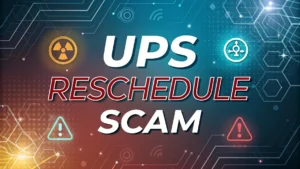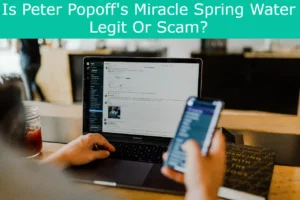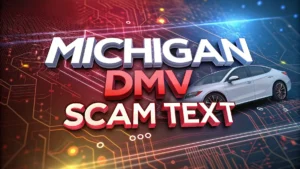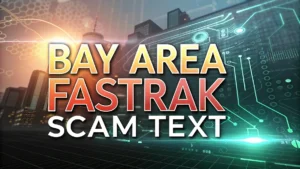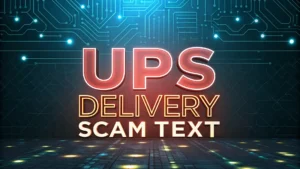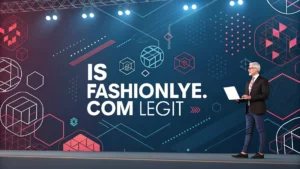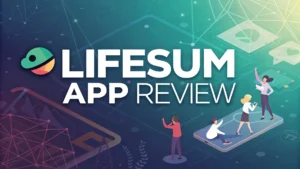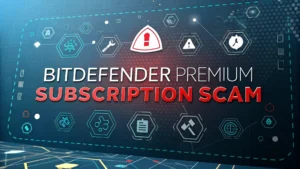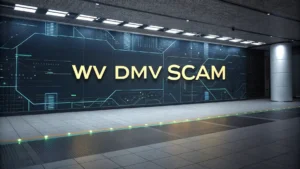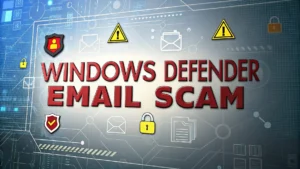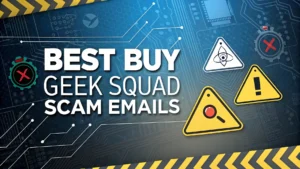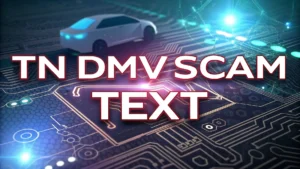Imagine getting a text message that looks like it came from the New Jersey Motor Vehicle Commission (NJ MVC). The message says you have unpaid traffic tickets, and if you don’t act fast, your license could be suspended. Sounds urgent, right? But here’s the twist — it’s not real. This is just one of the many tactics scammers are using in a growing wave of SMS phishing schemes targeting New Jersey residents.
These fake texts often come with threats of credit damage, registration issues, or even legal action. They’re designed to scare you into clicking a link or giving away personal information. And once they get that info, identity theft or financial loss can follow.
This blog post will walk you through everything you need to know about the NJ MVC scam, how to spot it, what to do if you’ve already responded, and how to protect yourself moving forward. We’ll break down the facts clearly and simply so you can stay safe and informed.
Key Takeaways
- Scammers are impersonating the NJ MVC via text messages to steal personal information.
- These texts often claim you have unpaid tickets or fines and threaten serious consequences.
- The real NJ MVC does not send unsolicited texts demanding payment or personal details.
- Clicking links in these texts can lead to identity theft or malware infection.
- Always verify any message by contacting the official NJ MVC website or phone number directly.
What Is the NJ MVC Scam?
The NJ MVC scam is a type of phishing scheme where fraudsters use text messages to trick people into thinking they owe money to the New Jersey Motor Vehicle Commission. These messages often include alarming claims such as:
- “You have unpaid tolls or traffic fines.”
- “Your license will be suspended unless you pay immediately.”
- “Failure to respond will damage your credit score.”
Many victims feel pressured to act quickly out of fear. However, these messages are not sent by the actual NJ MVC. The goal is to get you to click on a link or reply with sensitive data like your driver’s license number, Social Security number, or bank details. Once scammers have this information, they can commit identity theft or financial fraud. This type of scam has been reported across multiple towns in New Jersey, affecting both drivers and vehicle owners.
How Does the Scam Work?
The scam usually starts with a text message that appears to come from an official source. The message might look something like this:
“Your NJ MVC account has an overdue balance. Pay now to avoid license suspension.”
Sometimes, it includes a link that seems to go to the official NJ MVC website but actually leads to a fake login page or malware download. Other times, it asks for a direct response with your personal details.
Once you interact with the message — whether by clicking the link or replying — the scammer gains access to your information. From there, they may:
- Steal your identity
- Open fraudulent accounts
- Sell your data on the dark web
These scams are highly convincing because they mimic the tone and style of real government communications. That’s why it’s important to always double-check before responding to any unexpected message.
Why Are People Falling for the Scam?
One reason people fall for this scam is the sense of urgency built into the messages. Phrases like “immediate action required” or “your license is at risk” create panic. Many people assume the message must be real because it mentions their vehicle or license details.
Another factor is trust in official-sounding names. Since the message claims to come from the NJ MVC — a real and well-known agency — people are more likely to believe it without verifying. In addition, some of the fake websites used in these scams closely resemble the real NJ MVC site, making it harder to tell the difference.
Also, many people are not familiar with how the real NJ MVC communicates. If you’ve never received a legitimate text from them before, it’s easy to mistake a fake one for the real thing.
Signs That the Message Is Fake
Knowing how to identify a fake NJ MVC text can help you avoid becoming a victim. Here are some red flags to watch for:
- Urgent language: Messages that demand immediate action are often scams.
- Requests for personal information: The real NJ MVC will never ask for your Social Security number, driver’s license number, or banking details over text.
- Suspicious links: Hover over links (if possible) to see if the URL matches the official NJ MVC website. Most texts won’t let you hover, so it’s safer to ignore any link and visit the official site directly.
- Grammar or spelling mistakes: Official messages are usually professionally written. Errors are a sign of a scam.
- Unexpected contact: If you weren’t expecting a message about a fine or ticket, be cautious.
If you receive a message that raises any of these concerns, do not respond. Instead, report it and delete it immediately.
What Should You Do If You Get One of These Texts?
If you receive a suspicious text claiming to be from the NJ MVC, here’s what to do:
- Do not reply to the message.
- Do not click any links in the message.
- Delete the message from your phone.
- Report the scam to local authorities or the NJ MVC directly.
- If you’re unsure, call the official NJ MVC customer service line to verify.
Remember, the real NJ MVC only sends texts for appointment reminders. They will never ask for payments, personal data, or threaten license suspension through unsolicited text messages.
Taking these steps helps protect your personal information and also helps officials track and stop these scams.
What If I Already Responded to the Message?
If you’ve already replied to the scam message or clicked a link, take action right away:
- Change your passwords, especially for any accounts linked to your email or banking.
- Check your credit report for any new accounts opened in your name.
- Place a fraud alert on your credit file by contacting one of the major credit bureaus.
- File a report with the Federal Trade Commission (FTC) and your local police department.
- Contact your bank or credit card company to inform them of potential fraud.
It’s also a good idea to monitor your accounts regularly for any unusual activity. Identity theft can take time to uncover, so staying vigilant is key.
Even though it can feel stressful, acting quickly can reduce the damage and help you regain control of your personal information.
How Can You Protect Yourself from Future Scams?
Staying protected from future scams means being proactive and informed. Here are some tips:
- Educate yourself about common scam tactics.
- Use strong, unique passwords for all online accounts.
- Enable two-factor authentication wherever possible.
- Keep your software updated to protect against malware.
- Be skeptical of unsolicited messages, even if they seem official.
You can also sign up for alerts from your bank, credit card companies, and identity theft protection services. These tools notify you of any suspicious activity linked to your accounts.
Finally, talk to friends and family about these scams. Awareness is one of the best defenses against fraud.
Official Communication Channels of the NJ MVC
The real NJ MVC uses specific methods to communicate with the public. Knowing these can help you avoid falling for fake messages.
- Text messages: Only used for appointment reminders.
- Email: Sent through official NJ MVC domains.
- Phone calls: Usually made only after other communication attempts.
- Mail: Most formal notices arrive by postal mail.
- Website: All official information is posted on mvc.gov.
If you ever doubt the legitimacy of a message, contact the NJ MVC directly using verified contact details. Never use contact info provided in a suspicious message.
Real Stories: Who Has Been Affected?
Many New Jersey residents have shared stories of receiving these scam texts. Some were confused and worried, while others almost gave away sensitive information before realizing the truth.
One person said they got a message saying their car registration was canceled due to unpaid tolls. Another received a text claiming their license would be suspended unless they paid $400 within 24 hours.
Local law enforcement agencies like the Montclair Police Department and the Township of Millburn have issued warnings about these scams on social media. Their goal is to spread awareness and prevent more people from falling victim.
These real-life experiences show how widespread and convincing these scams can be. But they also highlight the importance of staying informed and cautious.
How Authorities Are Fighting Back Against the Scam
Law enforcement agencies and the NJ MVC are actively working to combat these scams. They issue regular updates on social media and official websites to warn the public. They also encourage people to report any suspicious messages.
Some towns have created community alert systems to keep residents informed. Others partner with telecom providers to block known scam numbers.
The Federal Trade Commission and the New Jersey Attorney General’s Office also investigate these scams and prosecute those responsible when possible.
While stopping every scam is difficult, these efforts help reduce their impact and raise awareness among residents.
FAQs
What should I do if I receive a suspicious text from the NJ MVC?
Delete the message and report it to the NJ MVC or local police.
Does the NJ MVC send text messages?
Yes, but only for appointment reminders — never for fines or payments.
How can I check if a message is really from the NJ MVC?
Contact the NJ MVC directly using verified contact details.
Can these scam texts harm my phone?
Some links in scam texts may install malware or steal your data.
How do I report an NJ MVC scam?
You can report it to the NJ MVC website or the Federal Trade Commission.






